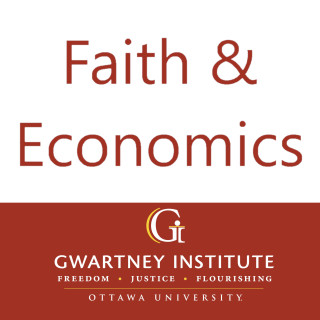

The Gwartney Team mixes it up, talking about some of the best recreational reading they've come across lately. No textbooks, no political tirades, just the kind of reading that they do for fun, and that you might enjoy. Is Peter is still reading Ernst Jünger? Why is Justin so weird? What kind of space-laser-weapons is Russ currently salivating over? For the answers to these questions – and for recommendations with which to stock your own wish list! – make sure not to skip this episode.